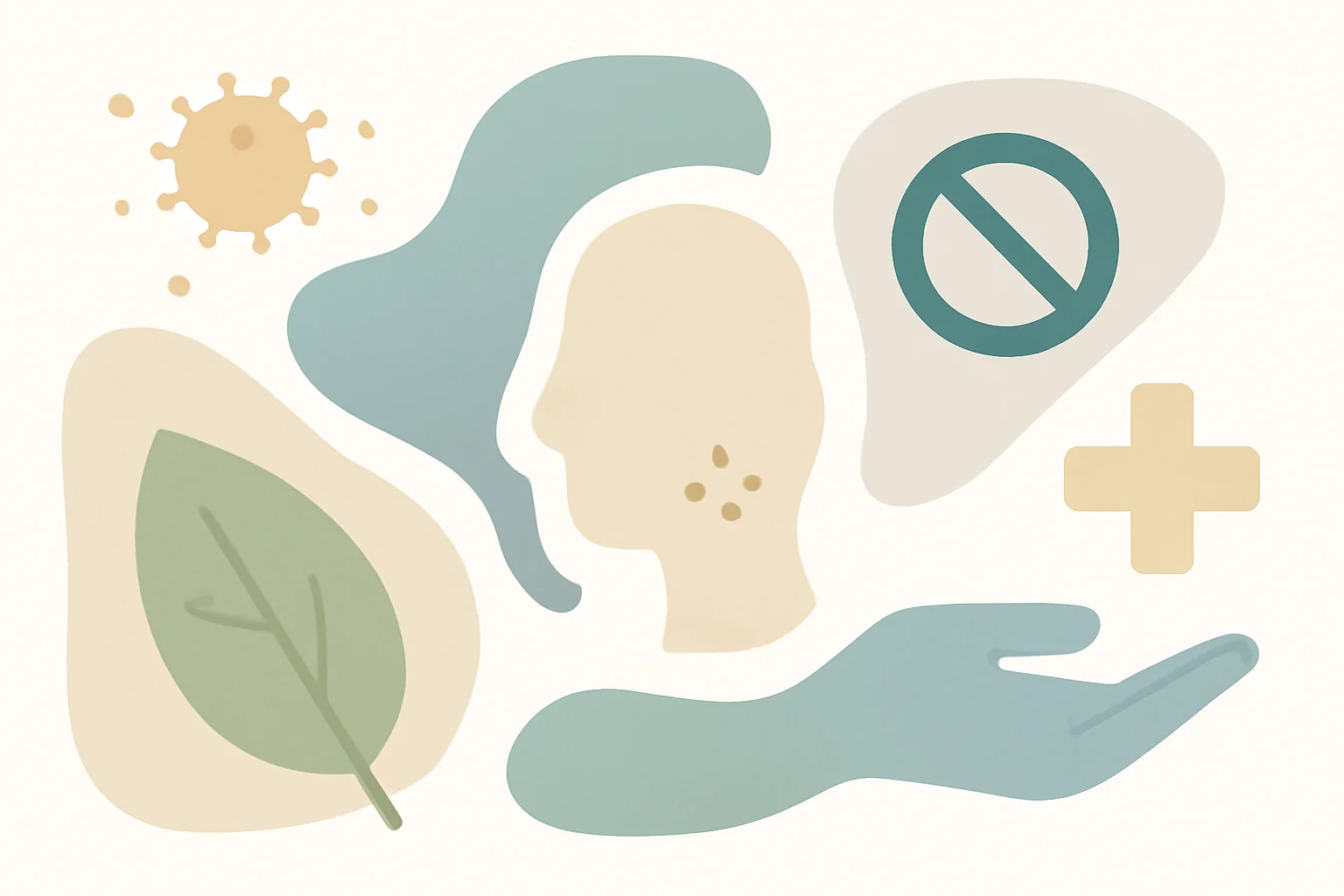
Allergy or Eczema? Find Out the Difference and How to Treat It!
In the modern world, an increasing number of people struggle with various skin issues that significantly affect their quality of life. Two common phenomena that affect many are allergies and eczema. These skin conditions not only come with physical symptoms but can also have psychological effects on those who suffer from them. Allergic reactions can occur to various substances, such as pollen, dust mites, or foods, while eczema is generally associated with skin inflammation and irritation.
The skin is the body’s largest organ and is capable of responding to numerous external influences. Deterioration of the skin’s condition can cause serious discomfort and often complicates daily life. Allergic reactions typically involve itching, redness, and rashes, while eczema can result in dry, flaky skin and also cause itching. Understanding the differences and similarities between the two conditions can help in developing the appropriate treatment and lifestyle.
Now let’s take a closer look at these phenomena and try to determine how to distinguish between allergies and eczema.
Understanding Allergies
Allergy is an immune response that signifies the body’s reaction to certain substances that the immune system identifies as foreign. These substances, or allergens, can include plant pollen, pet dander, dust mites, foods, medications, and other environmental factors.
When the body encounters an allergen, the immune system triggers an excessive reaction. This reaction can manifest in various symptoms, such as sneezing, runny nose, itchy eyes, skin rashes, or, in more severe cases, anaphylaxis, which is a life-threatening condition.
Allergic reactions encompass a wide spectrum, and symptoms can vary among individuals. Some may experience skin rashes, while others struggle with respiratory issues. Diagnosing allergies can be done through various methods, such as skin tests or blood tests.
The treatment of allergic reactions usually involves the use of antihistamines, which reduce inflammation and itching. However, it is important to note that the best solution is to avoid allergens. Keeping the environment clean, maintaining proper nutrition, and leading a healthy lifestyle also play a role in preventing allergies.
To prevent allergies, it is advisable to consult an allergist who can help identify triggers and create a personalized treatment plan.
Characteristics of Eczema
Eczema, also known as atopic dermatitis, is a chronic skin condition characterized by skin inflammation and irritation. The causes of eczema are multifaceted and often stem from a combination of genetic, environmental, and immunological factors. The condition is particularly common among children but can also appear in adults.
Symptoms of eczema include dry skin, itching, red patches, and skin flaking. Skin irritation often exacerbates symptoms and can cause significant discomfort for patients. Eczema typically appears on the elbows, knees, face, and neck but can occur anywhere on the body.
During treatment, it is important to hydrate the skin, as dry skin increases itching and irritation. The use of moisturizing creams and ointments is recommended, as well as anti-inflammatory creams that help alleviate symptoms.
Stress and environmental factors, such as allergens, can also worsen eczema, making stress management and avoidance of allergens important steps in treatment. Treating eczema requires an individualized approach, so it is advisable to consult a dermatologist who can help develop appropriate treatment methods.
The Importance of Distinguishing Between Allergy and Eczema
Distinguishing between allergic reactions and eczema is crucial for appropriate treatment. Since both conditions involve skin issues, the symptoms may appear similar at first glance. However, the triggers and treatment methods differ.
Allergic reactions typically occur suddenly and may be accompanied by respiratory complaints, while eczema usually develops gradually and represents a more persistent condition.
To establish a diagnosis, it is important to have a proper medical background, which includes a thorough review of medical history, the timeline of symptoms, and connections to environmental factors. A dermatologist or allergist can assist in conducting the appropriate tests and establishing a diagnosis.
With the right information, sufferers may be able to manage symptoms and avoid triggers, significantly improving their quality of life.
How to Manage Skin Problems?
Managing skin problems is a complex task that considers multiple factors. The first step is to establish an accurate diagnosis, which facilitates the selection of appropriate treatment methods.
In the case of allergies, avoiding the triggering allergens is paramount. Following this, the use of antihistamines and anti-inflammatory medications can help alleviate symptoms. It is important for patients to educate themselves about potential allergens and consult an allergist if necessary.
Treating eczema begins with hydrating the skin. The application of moisturizing creams and specialized ointments is recommended. To reduce inflammation, medications suggested by a dermatologist, such as corticosteroid creams, can also be effective. Additionally, stress management, proper nutrition, and a healthy lifestyle can contribute to improving eczema conditions.
It is essential for patients to pay attention to their skin’s reactions and consult a doctor in case of any changes. Managing skin problems requires an individualized approach, making professional advice crucial.
This article does not constitute medical advice. In case of health problems, everyone should only follow the advice of their physician.

